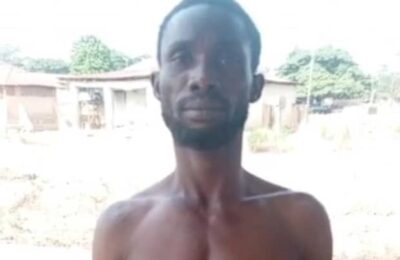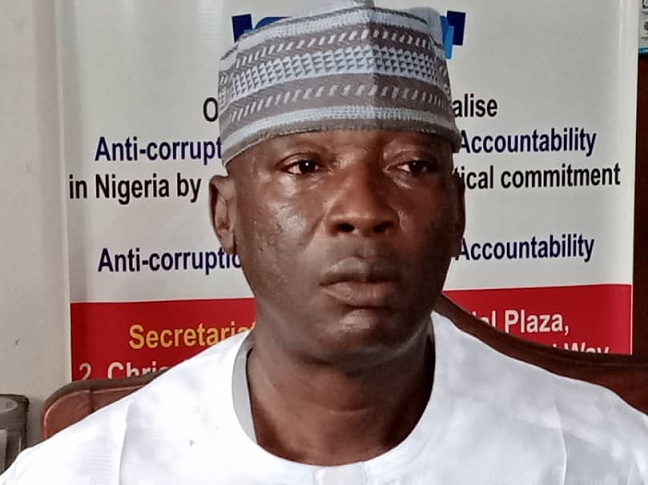Igalaland is bleeding politically—not from foreign oppression or structural marginalization, but from within. The hemorrhage is quiet, slow, and internal, often disguised as passionate political participation. Yet beneath the noise lies the deeper illness: a lack of political education, unity of purpose, and long-term vision. Other ethnic nationalities—like the Ebirra, the Idoma, and the Tiv—have emerged as formidable forces in their states, leveraging political understanding, timing, and coalition-building to secure relevance. But the Igala nation, once dominant, has gradually reduced itself to an arena where political misunderstanding and personality cults override community interest.
It is disturbing that the largest ethnic group in Kogi State, blessed with rich history and numerical strength, has failed to convert this advantage into enduring political capital. Instead of collective strategy, we wage internal wars. Instead of coalition, we choose division. While others position themselves as kingmakers, we compete to see who will be the next pawn. As the Igala proverb goes, “A child who refuses to be taught at home becomes a public disgrace at the village square.” Our political square is fast becoming one of ridicule.
Other ethnic groups build ladders for their youths to climb into leadership; we pull ours down, then blame the fall on fate. The Ebirra understand timing, compromise, and internal negotiation. The Idoma consolidate around shared interest even when power eludes them. The Tiv wield their demographic strength with focus and strategic mobilization. But the Igala people often fight their own dreams into dust. We have become political spectators in a game we once created and dominated. “The price good men pay for indifference to public affairs is to be ruled by evil men,” Plato warned. But in our land, it is not just indifference—it is a combination of political illiteracy and fratricide.
The consequences are grave. We have lost our bargaining power in government houses, surrendered our voice in legislative chambers, and allowed others to redefine our destiny. The tragedy is not just that we are politically weakened—it is that we often celebrate our weakness as freedom. We dance at rallies, take photos with charlatans, and trade our votes for cup of rice and wrappers. John F. Kennedy once noted, “The ignorance of one voter in a democracy impairs the security of all.” Our ignorance, in this case, is systemic—and it is costing us everything.
Political education is not simply about knowing who your governor is or memorizing the names of past presidents. It is the deeper understanding of governance, civic responsibility, rights, obligations, and the strategic art of negotiation. It is the training of minds to question, to assess, to vote with discernment, protects the vote and to hold power accountable. “Education is the most powerful weapon which you can use to change the world,” said Nelson Mandela. Yet in Igalaland, this weapon has grown blunt.
The rescue mission must begin with the youth. We need to plant civic education deep into the fabric of our adults education, primary schools, secondary schools and higher institutions. These are not to be ceremonial subjects but dynamic platforms that cultivate engagement—mock elections, leadership simulations, townhall debates, and policy clubs. The idea is to train thinkers, not just voters. Victor Hugo said, “He who opens a school door, closes a prison.” In our context, whoever opens a political school closes the door to political slavery.
Beyond formal education, our faith institutions—churches and mosques—must awaken to their civic roles. Sermons and khutbahs must teach accountability, leadership, and justice. Politics must not be seen as evil, but as a sacred calling to serve humanity. Prophet TB Joshua once said, “If you must lead, you must first learn to serve.” Service-oriented politics must be preached from the pulpit as much as salvation. The gospel of civic responsibility must be loud in our altars.
Thirdly, we must democratize political knowledge through local media. Community radio stations, grassroots debates, and language-specific political talk shows must be revived across Igalaland. When people understand governance in their mother tongue, they vote with clarity, not confusion. The Yoruba say, “He who knows how to speak truth in the village square does not fear the chief’s cane.” Our village squares must once again become centers of civic wisdom.
In addition, a non-partisan Igala Political Education Commission should be inaugurated. This body—made up of intellectuals, traditional rulers, journalists, and technocrats—should develop civic literacy handbooks, organize enlightenment outreaches, and launch anti-vote-buying campaigns. Civic bootcamps must replace burial parties as our community events. As Thomas Jefferson said, “An educated citizenry is a vital requisite for our survival as a free people.” Without it, we are endangered.
We must also unleash our youth-led NGOs and digital platforms into this battlefield of ignorance. Let them translate political content into songs, skits, drama, comedy, and street theatre. Let political literacy go viral. TikTok, Facebook, WhatsApp, and local markets must become theatres of enlightenment. “To reach the people,” said Frantz Fanon, “speak their language, live their life, share their fears.” This is the politics of relevance.
The Igala woman, often the backbone of community economy, must be politically empowered—not just as a voter but as a decision-maker. The Igala youth must stop being pawns in the hands of expired godfathers. Our elders must retire the dangerous rhetoric of “our turn” and embrace a new language of competence, accountability, and equity. Our traditional leaders must rise above political silence and become active protectors of our political future. Leadership is not inheritance—it is a responsibility.
We cannot afford to repeat the mistakes of past elections—where sentiment, tribalism, and short-term gratification guided our decisions. Our future is too expensive to be bought with a bag of rice. If we fail to rethink, reeducate, and reorganize, we will become political fossils—spoken of in past tense while others define our present and future.
Let this be the generation that reclaims the political soul of Igalaland. Let this be the season we stop shouting “Igala agenda” and start writing one. Let the child in Ajaka learn political strategy like the one in Otukpo. Let the youth in Idah understand government budgeting like the youth in Lokoja. Let the woman in Ankpa know her voting power like the woman in Okene. Let the old man in Ibaji know that every vote cast is a covenant with tomorrow.
If we do not teach ourselves how to govern, we will always be governed by those who do not have our interests at heart. This is the hour of awakening. The time to reeducate Igalaland is now. For it is not too late to recover lost ground, but it is too dangerous to remain where we are.
– Inah Boniface Ocholi writes from Ayah – Igalamela/Odolu LGA, Kogi state.
08152094428 (SMS Only)




